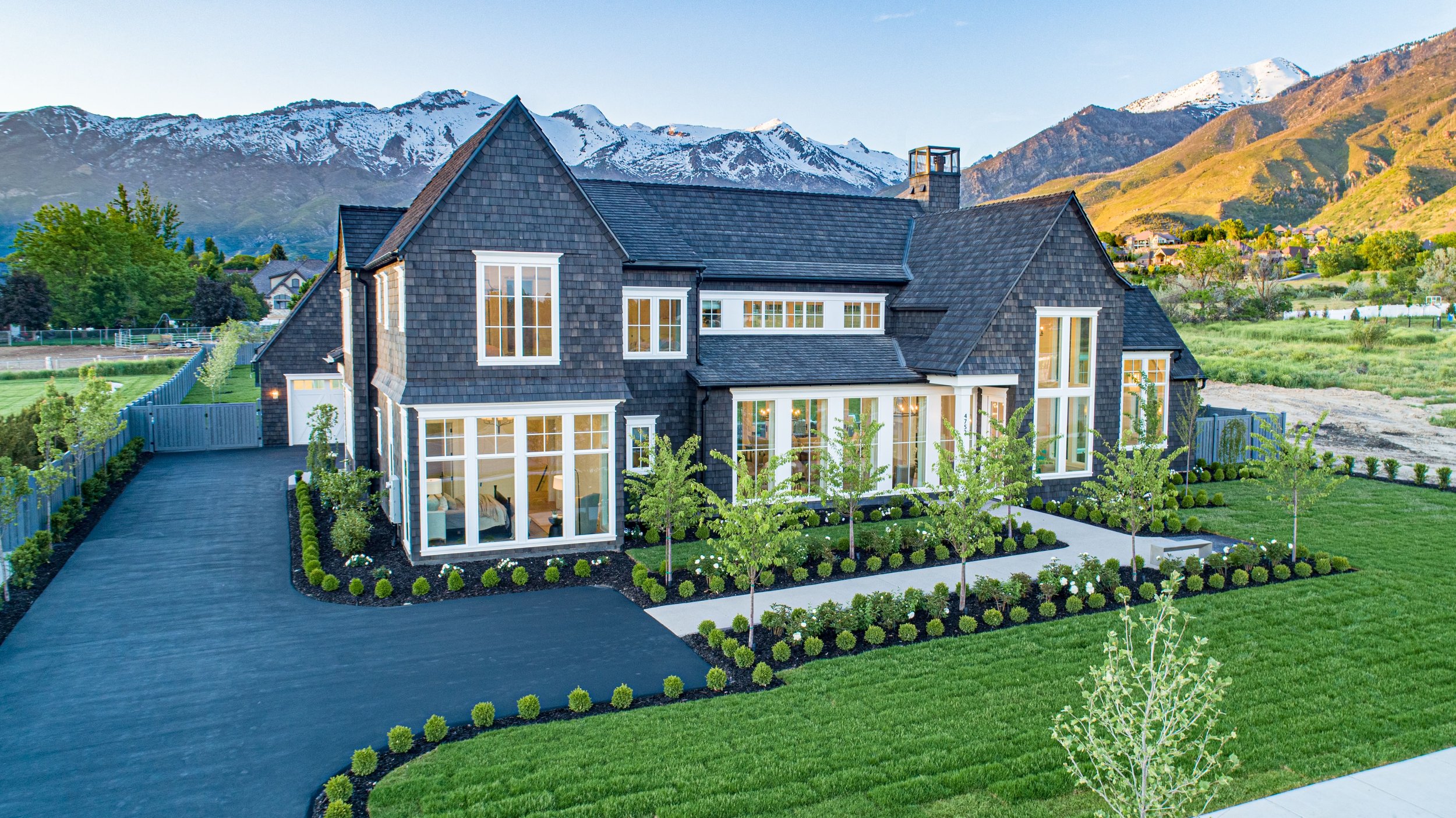Frequently Asked Questions about Composite Roofing | What is a Composite Roof?
What is Composite Roofing?
Composite roofing shingles and composite roofing products are made out of recycled plastics and other sustainable materials. The materials used to produce composite materials may include fiberglass, rubber, recycled paper products, and asphalt. Composite roofing products can be composed of polyethylene or polyurethane.
To provide a more appealing appearance, manufacturers of composite roofing materials attempt to replicate the look of traditional roofing products like wood, slate, and clay. Many composite roofing products are fire resistant and do not have problems with moisture intrusion like traditional roofing materials. Some composite shingle roofs are even resistant to mildew, algae, and mold growth. Many composite roofing shingles do not crack, peel, or split and come in a variety of colors, which makes them a desirable option for homeowners looking to upgrade their roof. If you are looking at alternatives to wood shake shingles, metal, vinyl, asphalt, concrete or clay tiles, you may want to consider composite roof products. Let us examine frequently asked questions about composite roofing and composite shingle roofs.
Composite Roofing is Lightweight, Durable, and Cost Effective
Benefits to composite roofing is the durability, weight, and cost. Composites are very durable and can provide long-term impact resistance, wind resistance, and fire resistance for your home. Manufacturers of synthetic composite roofing products generally offer a product warranty which can last anywhere from 30-50 years. While the upfront cost for composite roofing may be higher than other roofing types, the pros of composites often times heavily outweigh the cons.
When re-roofing your home, do not overlook the weight of the new roof. Roofing products can be surprisingly heavy, and the heavier your roof the more weight burden you put on the structure of the home. If you are re-roofing an older home or aged structure, it is recommended to choose a light weight roofing product.
When you are in the market to replace your roof, cost is a major factor. Keep in mind that there are many different types of composite roofing products, so the cost may vary based on your product preference and location. Some factors you should consider before purchasing composite roofing is below.
How long are you planning on living in the home?
What is the size of your roof?
The common unit of measurement in roofing is a roofing square.
A roofing square refers to a 10 x 10 area (or square) on the roof.
The larger your roof, the more money you will pay to replace it.
Get multiple estimates from roofing contractors.
If you are serious about composite roofing, you will need to contact roofing contractors and get estimates to replace your roof. It is best practice to get multiple estimates from different contractors so you can compare cost.
Where is the roofing contractor located? Are they reliable, trustworthy, and local?
How does Composite Roofing Compare to Asphalt Shingles?
Asphalt shingles are the most popular roofing material in the United States. Asphalt shingle roofs are affordable and widely available. Composite roofing materials on the other hand provide a longer warranty and more realistic look than asphalt shingles. Composite materials can be manufactured to mimic the look of most roofing materials (slate, tile, cedar shake). Asphalt shingles are more heavy than composite materials, so depending on the roofing contractor a composite shingle roof can be easier to install and transport on the job site.
How does Composite Roofing Compare to Genuine Slate or Cedar Roofing?
With advancements in technology, composite materials are now able to provide the same natural beauty and aesthetic appeal of real slate or real wood cedar shakes without the weight issues or organic degradation. Real slate provides a home with stunning beauty, however it is very heavy. Depending on the thickness of a real slate roof, you can expect slate to weigh 5.5 – 7.3 pounds per square foot. By comparison, a composite CeDUR roof weighs just 1.7 pounds per foot. If you are thinking about putting real slate on your roof it is best to consult with a structural engineer prior to installation to ensure that your building can withstand the weight of a new slate roof.
The problem with natural cedar wood shake shingles is organic degradation over time. While chemical treatments and preservatives are commonly used on wood shake roofs, a wood roof is still susceptible to algae and mold growth. Wood shake shingles are also prone to rotting, cupping, curling, warping, nail popping, splitting, cracking, water absorption, insect and debris build up, UV damage, splintering and graying / fading.
In addition, wood shake shingles are extremely flammable. If you live in a high risk fire area, mountain community, or an area with a wood shake ban, it is recommended that you do not put on a real cedar wood roof. Instead you should look at a composite alternative like CeDUR.
CeDUR will not degrade over time, our composite synthetic manufacturing process provides lasting beauty, and our proprietary fire retardant technology will extinguish flame spread in the event of a fire. CeDUR Roofing Shakes are perfect for any region or climate in the world.
How Long Does Composite Roofing Last?
Composite roofing materials are recognized for their long-term durability. While other roofing shingles last on average 15-20 years, most synthetic composite roofing materials are warrantied anywhere from 30-50 years.
The Best Synthetic Composite Roof Alternative
If you are looking for a reliable roofing product and viable composite shingle roof, look no further than CeDUR. Our composite roofing products are fire resistant, light weight, highly durable, and provide property owners with peace of mind and long term value. For over 20 years CeDUR has been trusted by architects, homeowners, roofing contractors, distributors, and custom home builders. All of our products are tested and certified by the Underwriters Laboratories (UL) and International Code Council (ICC).
CeDUR has passed the most stringent testing standards with regards to impact resistance and fire resistance. CeDUR shakes are the thickest and most durable synthetic roofing shakes that you can purchase. Our synthetic cedar shakes feature a 3/4” inch butt end that truly captures that hand split heavy cedar shake appearance.
50 Year Lifetime Limited Warranty
Class A Fire Rating - ASTM E 108 Fire Rating
Class 4 Impact Rating - UL 2218 Impact Rating
Fire Resistant Technology - only CeDUR extinguishes flame spread in the event of a fire
CeDUR provides homeowners with the most natural wood looking composite roofing product available. Our state of the art manufacturing process allows us to mold each CeDUR shake from real wood, giving CeDUR unquestionable wood beauty while enhancing your home’s curb appeal and property value.



